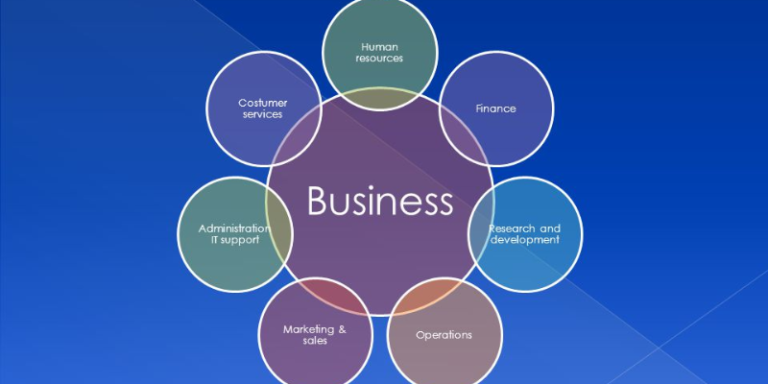In any organisation, several key functions contribute to its success. These include marketing, finance, human resource management (HRM), and operations. Each function plays a distinct role in achieving the organisation’s objectives, and their interrelationship is crucial for the overall effectiveness of the organisation. Understanding how these functions work individually and together is essential for grasping the dynamics within any business environment.
The Role of Marketing
Marketing is the function responsible for understanding customer needs, creating value, and fostering relationships that drive business success. It encompasses activities such as market research, product development, branding, pricing, distribution, and promotion (Kotler & Keller, 2016). Marketing is crucial for attracting and retaining customers, ensuring that the organisation’s offerings align with market demands.
In the organisational context, marketing is not just about advertising and selling products or services. It also involves a strategic approach to positioning the organisation in the marketplace, influencing customer perceptions, and ultimately driving revenue growth. The marketing function must align closely with the organisation’s mission and values, ensuring that its strategies and actions support broader organisational goals (Jobber & Ellis-Chadwick, 2019).
The Role of Finance
The finance function is the backbone of any organisation, providing the necessary resources for operations and strategic initiatives. It involves managing the organisation’s financial resources, including budgeting, forecasting, accounting, and investment management (Atrill & McLaney, 2019). Finance ensures that the organisation has the funds required to achieve its objectives, whether through internal cash flow or external financing.
Moreover, finance plays a crucial role in strategic decision-making. It provides data and insights that inform decisions on investments, cost management, and risk assessment. Without a robust finance function, an organisation would struggle to sustain its operations or invest in growth opportunities. The finance function must work closely with other departments to ensure that financial strategies support the overall mission and objectives of the organisation.
The Role of Human Resource Management
Human Resource Management (HRM) focuses on managing the organisation’s most valuable asset: its people. HRM involves recruitment, training and development, performance management, employee relations, and compensation and benefits (Armstrong & Taylor, 2020). The HRM function is crucial for building a motivated and skilled workforce that can drive the organisation towards its goals.
HRM also plays a strategic role in shaping the organisational culture and ensuring that it aligns with the organisation’s values and mission. By fostering a positive work environment, HRM helps in retaining talent and enhancing employee engagement. Additionally, HRM is integral to ensuring compliance with labour laws and ethical standards, which is essential for maintaining the organisation’s reputation and sustainability.
The Role of Operations
Operations management is concerned with the efficient and effective production and delivery of goods and services. It involves the design, management, and improvement of processes that transform inputs into outputs (Slack, Brandon-Jones & Johnston, 2019). The operations function is critical for ensuring that the organisation can meet customer demands while maintaining quality, cost-effectiveness, and flexibility.
Operations management is directly linked to the organisation’s mission and objectives. For instance, if an organisation’s mission includes delivering high-quality products, the operations function must ensure that production processes meet quality standards. Similarly, if the objective is to reduce costs, operations must find ways to enhance efficiency without compromising quality.
Interrelationships and Alignment with Organisational Objectives
The effectiveness of an organisation depends on how well these functions interrelate and align with the overall mission, values, and objectives. Marketing, finance, HRM, and operations cannot operate in silos. For example, the marketing strategy must align with the financial capabilities of the organisation. Similarly, HRM must ensure that the workforce is capable of executing the marketing, financial, and operational strategies.
Operations depend on HRM to provide skilled personnel and on finance for budget allocation. Marketing relies on operations to deliver the products it promotes, and finance to manage the revenue generated from sales. These interdependencies highlight the importance of cross-functional collaboration and communication.
Moreover, each function must operate in a manner that is consistent with the organisation’s values and mission. For example, if an organisation values sustainability, the operations function must focus on eco-friendly practices, while marketing should highlight these efforts to customers. Finance might prioritise investments in green technologies, and HRM could focus on training employees in sustainable practices.
Marketing, finance, human resource management, and operations are fundamental functions within an organisation, each contributing uniquely to its success. The interrelationship among these functions is essential for achieving the organisation’s mission and objectives. When aligned with the organisation’s values and goals, these functions work together to create a cohesive, efficient, and effective organisation.
References:
Armstrong, M., & Taylor, S. (2020) Armstrong’s Handbook of Human Resource Management Practice. Kogan Page Publishers.
Atrill, P., & McLaney, E. (2019) Accounting and Finance for Non-Specialists. Pearson Education.
Jobber, D., & Ellis-Chadwick, F. (2019) Principles and Practice of Marketing. McGraw-Hill Education.
Kotler, P., & Keller, K. L. (2016) Marketing Management. Pearson Education.
Slack, N., Brandon-Jones, A., & Johnston, R. (2019) Operations Management. Pearson Education.













